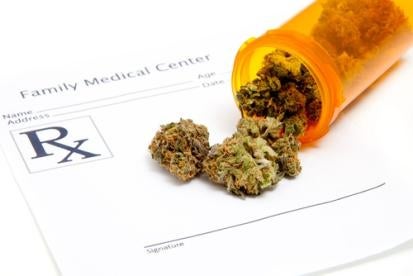Three days after retail sales of marijuana became legal in California, U.S. Attorney General Jeff Sessions announced today a new marijuana enforcement policy which rescinds long-standing policy set by the Obama Administration.
In a one-page memorandum, Mr. Sessions stated that marijuana is an illegal and dangerous drug, and directed all U.S. Attorneys to enforce the laws enacted by Congress and to follow “well-established principles” when pursuing prosecutions related to marijuana activities. These principles “require federal prosecutors deciding which cases to prosecute to weigh all relevant considerations, including federal law enforcement priorities set by the Attorney General, the seriousness of the crime, the deterrent effect of criminal prosecution, and the cumulative impact of particular crimes on the community.”
The memorandum rescinded, effective immediately, guidance set during the Obama Administration including memoranda written by James M. Cole that articulated a hands-off approach with regard to marijuana prosecutions. The Cole Memorandum issued in 2013 noted that while the Department of Justice was committed to the enforcement of the Controlled Substances Act (which makes marijuana illegal), it also was committed to using its limited investigative and prosecutorial resources to address only the most significant threats. DOJ’s enforcement priorities at that time included: preventing the distribution of marijuana to minors; preventing revenue from the sale of marijuana from going to criminal enterprises, gangs and cartels; preventing state-authorized marijuana activity from being used as a cover or pretext for the trafficking of other illegal drugs or other illegal activity; and, preventing violence and the use of firearms in the cultivation and distribution of marijuana; among other things. Outside of those enforcement priorities, DOJ expressed its willingness to rely on state and local governments that enacted marijuana laws to implement “strong and effective regulatory and enforcement systems that will address the threat that those state laws could pose to public safety, public health, and other law enforcement interests.”
“It is the mission of the Department of Justice to enforce the laws of the United States, and the previous issuance of guidance undermines the rule of law and the ability of our local, state, tribal, and federal law enforcement partners to carry out this mission,” said Attorney General Sessions. “Therefore, today’s memo on federal marijuana enforcement simply directs all U.S. Attorneys to use previously established prosecutorial principles that provide them all the necessary tools to disrupt criminal organizations, tackle the growing drug crisis, and thwart violent crime across our country.”
It is not immediately clear how the new DOJ policy will be implemented, particularly in light of the fact that President Trump publicly supported medical marijuana in the past, and stated that marijuana legalization should be addressed by the states. Currently, eight states and the District of Columbia have legalized recreational marijuana, and 29 states and the District of Columbia have legalized medical marijuana.




 i
i


